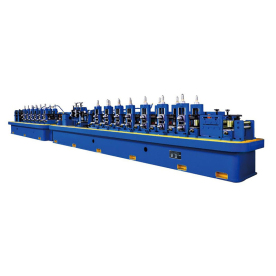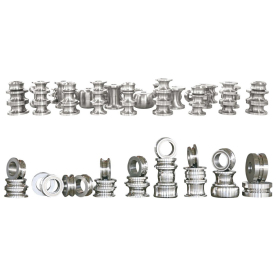[Pipe making machine]Understanding the Functionality and Benefits of Pipe Making Machines: Revolutionizing the Manufacturing Process in the Pipe Industry
In the ever-evolving landscape of manufacturing, pipe making machines have emerged as a vital component in the production of pipes used across various industries. These machines, designed with cutting-edge technology, significantly enhance the efficiency and quality of pipe production, making them indispensable for manufacturers looking to remain competitive in a market with increasing demands. This article delves into the functionality, advantages, and various applications of pipe making machines, highlighting their vital role in today’s industrial ecosystem.
What are Pipe Making Machines?
Pipe making machines are specialized machinery employed to manufacture pipes from various materials, including metals, plastics, and composites. These machines utilize advanced techniques to ensure that pipes are produced with uniform dimensions, high durability, and superior finish. The fabrication process typically involves several stages, including raw material preparation, extrusion, cutting, and finishing.
How Do Pipe Making Machines Work?
The functioning of pipe making machines can be broken down into several key processes:
1. **Material Preparation**: The process begins with the selection of raw materials. For metal pipes, materials like steel or aluminum are used, whereas plastic pipes may require polyethylene or PVC. In the case of multi-layered pipes, different materials can be combined to achieve specific characteristics.
2. **Extrusion**: One of the core processes in pipe production is extrusion, where the raw material is heated and forced through a die to create a continuous pipe shape. This method allows for the efficient production of pipes in various diameters and lengths.
3. **Cooling and Sizing**: After extrusion, the newly formed pipe is cooled, often using water or air, to solidify it. During this phase, the pipe is also sized to ensure that it meets required specifications.
4. **Cutting**: The long lengths of extruded pipe are then cut into manageable sections according to predetermined dimensions using automated cutting systems.
5. **Finishing**: Finally, the pipes undergo finishing processes, which may include deburring, polishing, or coating. These steps ensure that the pipes meet industry standards and customer specifications.
Benefits of Using Pipe Making Machines
The integration of pipe making machines into the manufacturing process offers numerous advantages:
– **Improved Efficiency**: Automated systems streamline production, reducing the time and labor required to manufacture pipes. This leads to higher output and cost-effectiveness as businesses can produce more within a given timeframe.
– **Consistent Quality**: Pipe making machines are designed for precision, ensuring that every pipe produced meets stringent quality standards. Uniformity in size and strength helps maintain the integrity of products used in critical applications.
– **Versatility**: Modern pipe making machines can be adapted to produce various types of pipes, including different diameters, wall thicknesses, and materials. This versatility allows manufacturers to respond quickly to changes in market demand.

Understanding the Functionality and Benefits of Pipe Making Machines: Revolutionizing the Manufacturing Process in the Pipe Industry
– **Reduced Waste**: With precise material handling and cutting, pipe making machines help minimize scrap material. This not only lowers production costs but also contributes to environmentally-friendly manufacturing practices.
– **Advanced Technology**: Many pipe making machines are equipped with PLC control systems and real-time monitoring capabilities, allowing manufacturers to oversee the process remotely and make adjustments as needed.
Applications of Pipe Making Machines
The applications of pipe making machines are widespread and critical across various sectors, including:
– **Construction Industry**: Pipes produced through these machines are essential for plumbing, drainage, and structural applications in buildings and infrastructure.
– **Oil and Gas Exploration**: Specialized pipes manufactured using robust materials are vital for transporting oil and gas, ensuring safety and efficiency during extraction and distribution.
– **Agriculture**: Irrigation systems rely heavily on durable pipes, which are often produced using pipe making machines, facilitating efficient water usage in agricultural practices.
– **Automotive Sector**: Pipes used in exhaust systems and fuel delivery also benefit from the advanced manufacturing processes offered by pipe making machines.

Understanding the Functionality and Benefits of Pipe Making Machines: Revolutionizing the Manufacturing Process in the Pipe Industry
Conclusion

Understanding the Functionality and Benefits of Pipe Making Machines: Revolutionizing the Manufacturing Process in the Pipe Industry
In summary, the significance of pipe making machines in modern manufacturing cannot be overstated. By enhancing efficiency, ensuring quality, and adapting to various industry needs, these machines have transformed pipe production into a seamless process. As industries continue to grow and evolve, the demand for innovative pipe making technology will only increase, driving further advancements and contributions to manufacturing practices worldwide. Embracing the capabilities of these machines is essential for any manufacturer aiming to succeed in an increasingly competitive landscape.Cost-effective ERW tube mill options